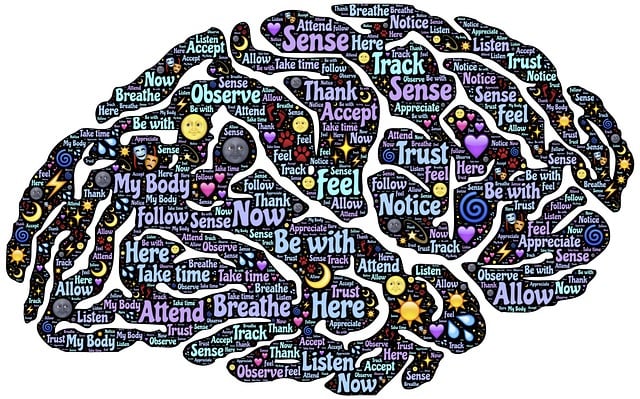Mindfulness meditation emerges as a powerful tool for young adults facing terminal illnesses, offering a unique approach to coping and enhancing mental wellness. This ancient practice, focusing on present-moment awareness and non-judgmental acceptance of emotions, becomes an active process of self-care, empowering individuals to manage stress and anxiety associated with their health conditions. Incorporating mindfulness into daily routines—with brief sessions of 5–10 minutes—enhances emotional well-being, supports through therapy, and prevents burnout and depression. Guided apps and dedicated spaces make it accessible. Key benefits include emotional regulation, self-esteem boost, present-moment awareness, and improved resilience against life's stressors, especially for those navigating terminal illness.
Mindfulness meditation is emerging as a powerful therapy for young adults facing terminal illnesses, offering a compassionate approach to managing symptoms and enhancing quality of life. This practice, rooted in ancient techniques, enables individuals to navigate their journey with greater calm and clarity.
This article provides practical guidance on understanding mindfulness, setting up a personalized practice tailored for young adults, and seamlessly integrating mindfulness into daily routines as a supportive tool for terminal illness management.
- Understanding Mindfulness Meditation for Terminal Illness Support
- Setting Up a Practice: Tips for Young Adults
- Incorporating Mindfulness into Daily Life for Terminal Illness Management
Understanding Mindfulness Meditation for Terminal Illness Support

Mindfulness meditation has emerged as a powerful tool for individuals facing terminal illnesses, offering a unique approach to coping and enhancing their overall mental wellness. This ancient practice focuses on bringing one’s attention to the present moment, cultivating awareness, and accepting emotions without judgment. For young adults navigating a terminal illness diagnosis, mindfulness can be a game-changer. It provides a means to navigate the emotional turmoil that often accompanies serious health conditions, helping them manage stress and anxiety.
In the context of therapy for young adults with terminal illnesses, mindfulness meditation goes beyond simple relaxation. It becomes an active process of self-care, empowering individuals to take control of their mental wellness. Through dedicated practice, one can learn to observe their thoughts and feelings without becoming overwhelmed, fostering a sense of calm and resilience. This is particularly beneficial in trauma support services as it assists in processing past experiences and managing the intense emotions associated with significant health challenges. Moreover, incorporating mindfulness into daily routines can enhance emotional well-being promotion techniques, ensuring individuals feel supported during their journey.
Setting Up a Practice: Tips for Young Adults

Starting a mindfulness meditation practice can be life-changing for young adults, offering tools to navigate stress and emotional challenges. It’s an accessible self-care strategy that doesn’t require extensive time or resources—just a quiet moment and an open mind. To establish a routine, begin with small, consistent steps. Set aside just 5–10 minutes daily; even brief practices can provide significant benefits. Consider using guided apps or online resources tailored for young adults to get started easily. Creating a dedicated space, free from distractions, enhances focus. A comfortable chair or cushion, dim lighting, and perhaps soothing sounds can transform any area into your personal meditation sanctuary.
Journaling alongside meditation amplifies its effects. After each session, jot down thoughts and emotions in a mental wellness journal to track progress and reflect on insights gained. This practice is valuable for burnout prevention and depression management. Remember, mindfulness is not about stopping thoughts but learning to observe them without judgment. As you integrate this habit into your routine, you’ll develop a stronger connection with yourself, fostering resilience against life’s stressors—even when facing terminal illness therapy for young adults.
Incorporating Mindfulness into Daily Life for Terminal Illness Management

Incorporating mindfulness into daily life can be a powerful tool for managing terminal illness, especially when tailored for young adults navigating this challenging phase. Mindfulness meditation practices have been shown to offer therapeutic benefits, assisting individuals in cultivating emotional regulation skills and improving self-esteem, which are crucial aspects of self-care during such trying times. By integrating mindfulness into their routines, young adults can enhance their ability to cope with the stress and emotions associated with terminal illness.
This approach encourages a present-moment awareness that allows individuals to disconnect from overwhelming thoughts and feelings. Regular mindfulness practice can foster a deeper sense of calm and resilience, enabling young adults to engage in self-care practices more effectively. It provides a means to navigate the emotional rollercoaster that often accompanies terminal illness, promoting a healthier mindset and improved overall well-being.
Mindfulness meditation offers a powerful tool for young adults facing terminal illness, providing a way to navigate this challenging journey with greater emotional balance and clarity. By integrating mindfulness into daily routines, individuals can enhance their quality of life, find solace in the present moment, and make more informed decisions regarding their care. This practice, often used as therapy for young adults with terminal illnesses, supports not only physical well-being but also fosters resilience and a deeper understanding of one’s inner strength during this difficult period.














